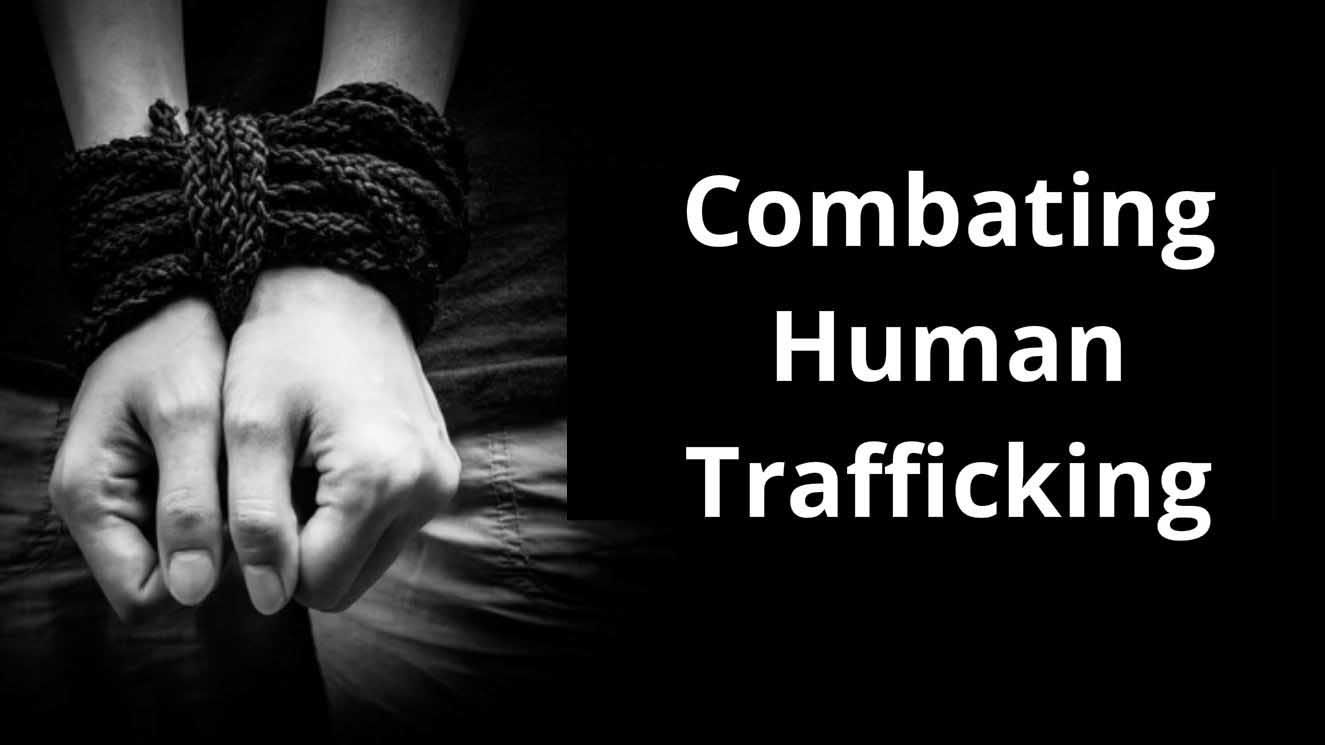HARRISBURG – Executives from the Pennsylvania departments of Transportation (PennDOT) and Human Services (DHS), Pennsylvania State Police (PSP), and the Governor’s Commission on Asian Pacific American Affairs were joined by advocates and a human trafficking survivor on Monday to discuss efforts to combat human trafficking and educate the public on the issue.
Human trafficking is the exploitation of people using force, fraud or coercion for the purposes of commercial sex, forced labor or domestic servitude.
According to the International Labor Organization, there are 21 million victims of human trafficking globally generating $150 billion annually for traffickers. January is recognized as Human Trafficking Awareness Month, with Jan. 11 marking #WearBlueDay to raise awareness of trafficking.
“Human trafficking is happening across the world, and unfortunately, right here in Pennsylvania,” PennDOT Secretary Leslie S. Richards said.
“We and other agencies are addressing this issue, and we’re also raising public awareness about this horrible practice.”
PennDOT is one of the first state government agencies nationwide to educate its employees on human trafficking awareness, with all staff at driver’s license centers and Welcome Centers receiving training.
The training was also made available to other department employees, transit agency employees and is available online under the “Human Trafficking” Media Center at www.penndot.gov.
The National Human Trafficking hotline (1-888-373-7888) is a 24/7 resource for victims and service providers that also collects data about human trafficking for every state and the District of Columbia. Since 2007, the hotline has received a total of 3,994 calls that generated 1,046 cases in Pennsylvania.
As of June of 2018, the hotline received 246 calls that led to 127 reported cases in Pennsylvania. Of those cases, 106, or 83 percent, dealt with sex trafficking.
Fourteen cases, or 11 percent, dealt with labor trafficking, three cases were not specified as either sex or labor trafficking, and four cases were a combination of both.
In 2017, 562 calls were received, and they led to 199 reported cases, of which 154 dealt with sex trafficking, 23 dealt with labor trafficking, 15 were not specified as either and seven were a combination of both.
Most of the individuals who placed calls were concerned community members who knew the signs of trafficking and how to report to the authorities.
Members of the PSP Organized Crime Task Force participate in human trafficking investigations that lead to arrests and prosecutions with multiple federal, state and local law enforcement agencies, including the Federal Bureau of Investigation (FBI), Homeland Security, Immigration and Customs Enforcement and the PA Office of Attorney General.
“The Pennsylvania State Police works every day with our local and federal law enforcement partners to prevent, identify, and investigate human trafficking, but we cannot be everywhere,” said Captain Derrick Baker, director of PSP’s Special Investigations Division.
“By educating themselves on the warning signs, and calling authorities when things don’t seem right, the public can help police in our mission to fight human trafficking in Pennsylvania.”
While demographic data isn’t available for every 2017 case in Pennsylvania, available data illustrates the lives impacted by human trafficking: 168 of the survivors were female and 19 were male. Fifty-four were children and 120 were adults, and 41 victims were U.S. citizens or legally present residents, while 27 were foreign nationals.
“As we work to help child victims of human trafficking, we must provide services and support necessary to help live safe, healthy lives and cope with the trauma they experienced,” said DHS Deputy Secretary for Children, Youth and Families Cathy Utz.
“We continue to work with advocates and our partners at the federal and local level to ensure the availability of quality services to meet their unique needs.”
The public is urged to report potential human trafficking situations to the national hotline, which coordinates with law enforcement and other professionals, at 1-888-373-7888. While it is challenging to identify a trafficking situation, potential warning signs could include:
- lack of knowledge of a person’s community or whereabouts;
- restricted or controlled communication where people cannot speak for themselves;
- people not in control of their own identification documents; or
- signs of branding or tattooing of a trafficker’s name (often on the neck).
Concerned citizens are urged to say something if they see something. If you suspect a trafficking situation, it is better to call the hotline and be wrong than to not call at all.
“Human trafficking is the fastest growing criminal industry in the world, targeting the most vulnerable in our communities – and is destroying the lives of an entire generation of victims,” said Governor’s Commission on Asian Pacific American Affairs Executive Director Tiffany Chang Lawson.
“It is a human rights crisis that cannot be fought alone by local law enforcement agencies, and that’s why partnerships like these are so incredibly important.”
Representatives from the Villanova Law Institute to Address Commercial Sexual Exploitation, including Director Shea Rhodes and Survivor Leader Tammy McDonnell, participated in the event and shared first-hand experiences in human trafficking.
The Pennsylvania Commission on Crime and Delinquency and the University of Pennsylvania’s Field Center for Children’s Policy, Practice & Research also joined the event.
PennDOT has compiled resources from the U.S. Department of Transportation, U.S. Department of Homeland Security’s Blue Campaign to end human trafficking, Pennsylvania-based resources as well as related videos and graphics in its “Human Trafficking” Media Center at www.penndot.gov.



